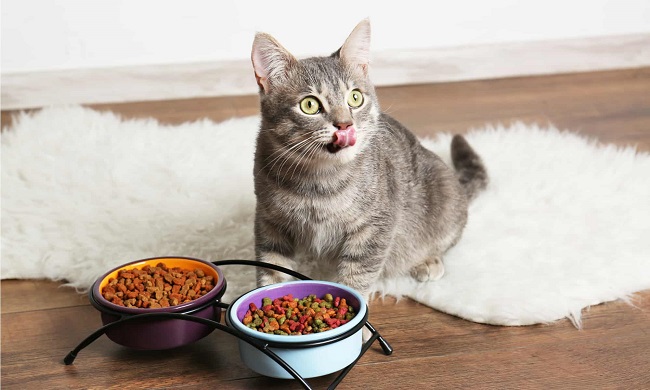Cats are carnivorous by nature, but that doesn’t mean they can’t benefit from Fiber. Fiber For Cats can play a crucial role in maintaining optimal health by aiding digestion, supporting weight management, and helping to control hairballs.
This article will provide insights into six great sources of Fiber For Cats and delve into how much they need daily.

Why Do Cats Need Fiber?
While cats don’t need as much Fiber as humans or even dogs, a small amount can be beneficial. Fiber can add bulk to a cat’s diet, helping them feel full without adding excessive calories, which can aid in weight management.
Read Also:
It also helps maintain a healthy digestive system, reducing the likelihood of constipation and diarrhea. Moreover, Fiber can help control hairballs by aiding their passage through the digestive tract.
The Six Essential Sources of Fiber For Cats
Here is some essential sources of Fiber For Cats:
1. Pumpkin
Pumpkin is a safe and natural source of Fiber For Cats. It is low in calories and rich in vitamins and minerals, promoting overall health. Adding a spoonful of pureed pumpkin to your cat’s meal can increase their Fiber intake and aid digestion.
2. Peas
Peas are often found in many commercial cat foods as a source of both protein and Fiber. They are rich in vitamins A, K, and B, which contribute to a cat’s overall health.
3. Carrots
Carrots are an excellent source of Fiber For Cats. They also provide essential vitamins and minerals. Carrots should be cooked and pureed or finely grated before being given to cats, as large pieces can pose a choking hazard.
4. Apples
Apples, when peeled and served without seeds, can be a safe and beneficial source of Fiber For Cats. They also provide essential vitamins and antioxidants.
5. Oatmeal
While cats are not naturally grain-eaters, small amounts of cooked oatmeal can provide a healthy dose of Fiber. Oatmeal also contains essential nutrients like iron, vitamin B6, and calcium.
6. Flaxseeds
Flaxseeds are not only rich in Fiber but also in omega-3 fatty acids, promoting a healthy skin and coat. They should be served ground or as an oil, as whole flaxseeds can pass undigested through a cat’s system.
How Much Fiber Do Cats Need Daily?
Cats typically require a lower Fiber intake compared to other pets. On average, a cat’s diet should consist of about 3% to 5% Fiber. However, the specific amount may vary depending on the cat’s age, health status, and lifestyle. It’s always best to consult with a vet to determine the right amount of Fiber for your individual cat’s needs.
Read Also:
Conclusion
Fiber plays a vital role in a cat’s diet, even if their needs differ from ours. Incorporating safe and healthy sources of Fiber can contribute positively to your cat’s overall health.
Remember, while increasing the Fiber intake of your cat, it should be done gradually and under the guidance of a vet to avoid upsetting their stomach.
With proper balance and supervision, you can ensure your cat is receiving all the nutritional benefits that Fiber has to offer.
























